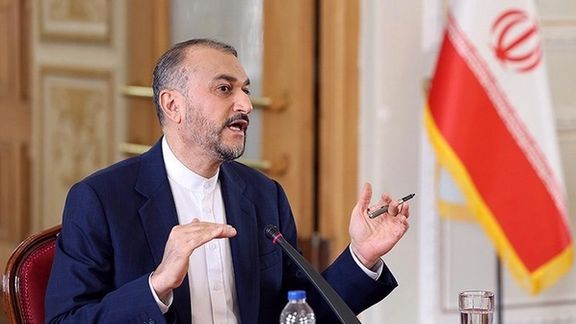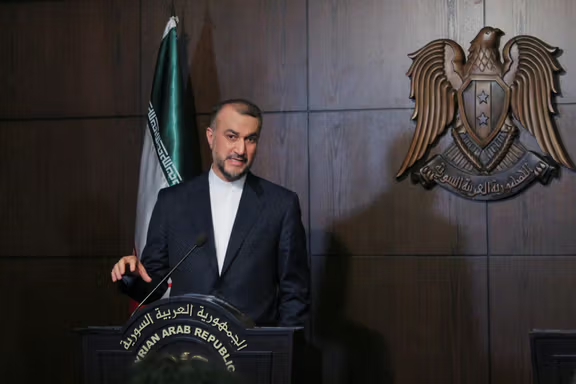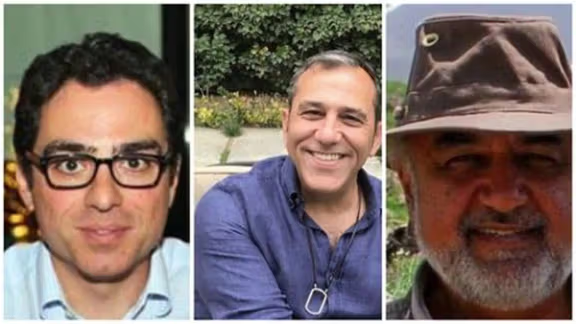Iran Insists There Is A Prisoner Release Deal With US

The Islamic Republic insists it has reached a deal with the US on a prisoner swap, a development that Washington has been denying but Tehran is getting more vocal about it.

The Islamic Republic insists it has reached a deal with the US on a prisoner swap, a development that Washington has been denying but Tehran is getting more vocal about it.
Iranian Foreign Minister Hossein Amir-Abdollahian repeated on Sunday that the two countries have agreed on such a deal but it is not clear if the claim is true or it is a stunt by the regime. The new snippet of information that was divulged to the media in Amir-Abdollahian’s remarks was that the US and Iran had agreed on the deal March last year and they are tweaking the details through an unnamed third party in recent weeks.
“We have signed a document in March last year through a representative introduced by the United States from a third country. We consider the issue of prisoner exchange to be a completely human issue. In recent weeks, there have been indirect discussions to update that document regarding the exchange of prisoners," he said.
The minister added that the basis of any new agreement is the minutes of the meeting that were signed in March last year. “Our opinion is that the American side should pay attention to the human aspects of this issue above all, this is something that is strongly emphasized by us,” he said.

If true, a deal one year ago might have been within the context of a nuclear agreement that never materialized and probably hinged on a US agreeing to free Iran’s frozen funds. It has long been reported that South Korea would free about $7 billion held in escrow by its banks due to US sanctions.
The United States has categorically denied the existence of such a deal, but it can simply be the Biden administration’s tactic not to build up the hopes of the involved families or to avoid international outcry over its covert appeasement of a regime that is condemned by the international community over its gross human rights violation during recent protests and its military assistance to Russia.
Washington has repeatedly expressed concern about the fate of its citizens imprisoned in Iran but also has rejected the existence of such a deal, that can be construed as a failure to stand up against the Islamic Republic’s policy of hostage taking, a practice that started in the early days after the establishment of the regime and has been often used ever since.
In November 1979, a group of leftist students backed by the new revolutionary government occupied the US embassy in Tehran and took 54 Americans hostage for 444 days. Iran never condemned the act that ruptured bilateral relations. Tehran denies any policy of hostage taking and insists all foreigners are tried legally. However, it has frequently shown readiness for prisoner exchanges and participated in swaps in the past.
UN experts and international human rights organizations say that the Islamic Republic takes foreigners hostage to extract concessions from the West.
Currently, the regime is in the midst of negotiations to bring home one of its former diplomats, who is serving a life sentence in Belgium for his involvement in a plot to bomb a gathering of an exiled dissident group. Belgium's Constitutional Court said in a press release earlier in the month refused to annul a treaty with Iran that could lead to the diplomat, Assadollah Assadi, convicted of terrorism, to be swapped for Belgian aid worker Olivier Vandecasteele, held hostage in Iran.

Since early March, Iran insists it is doing a prisoner swap with the US in spite of the Biden administration’s categorical denials. The Iranian foreign ministry says the "written agreement has been signed by the official representative of the United States” though has not named the official.
White House denies such claims, calling it “a cruel lie”, but reiterates that the United States is committed to securing the release of Americans held in Iran.
Three Iranian-American citizens, Siamak Namazi, Emad Sharqi, and Morad Tahbaz, are still imprisoned in Iran. In exchange for the release of the hostages, in addition to demanding money, the Islamic Republic plans to urge Washington to release the Iranians imprisoned in the US for circumventing sanctions or involvement in terror activities.